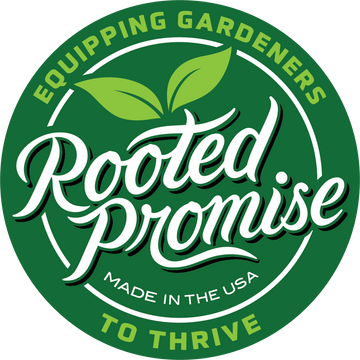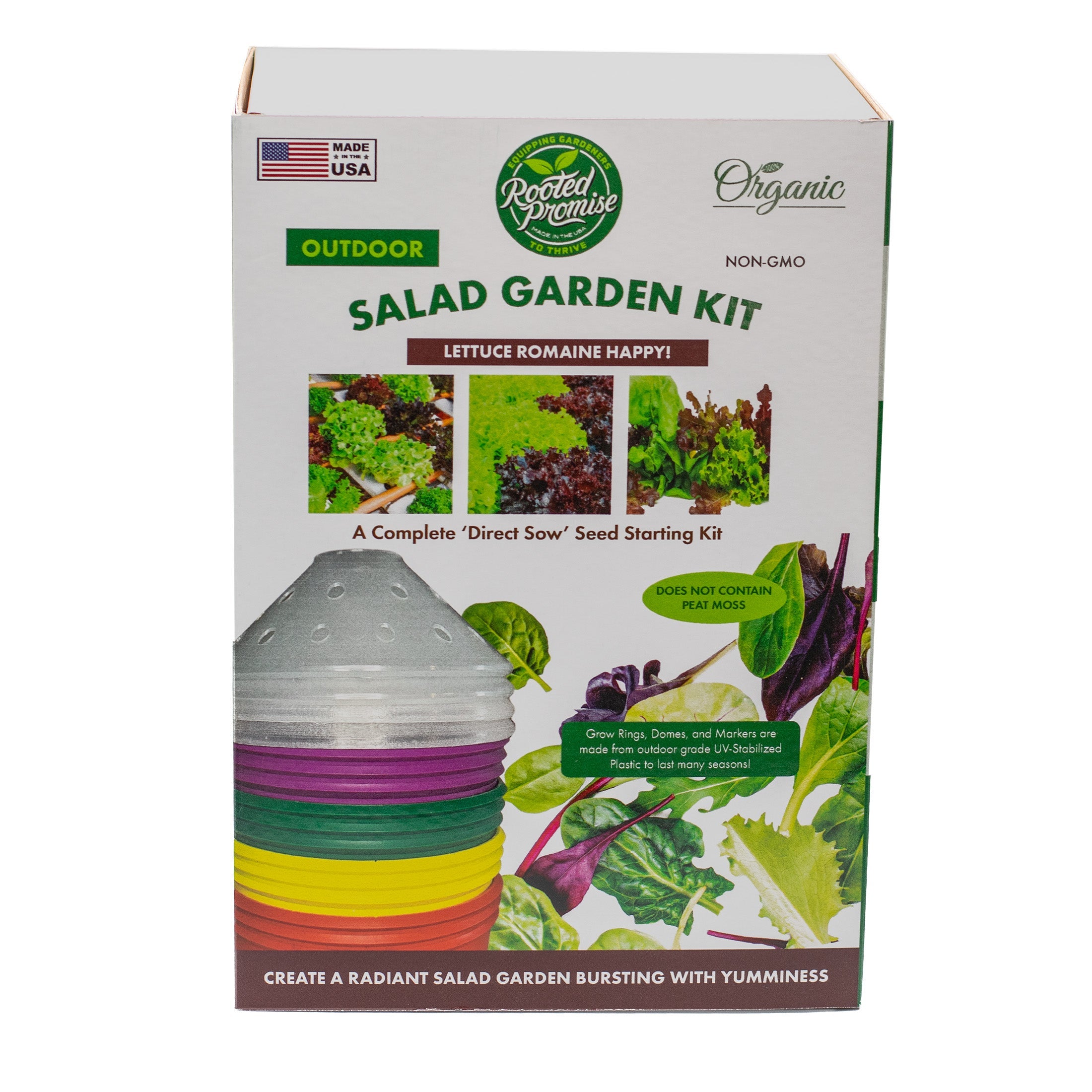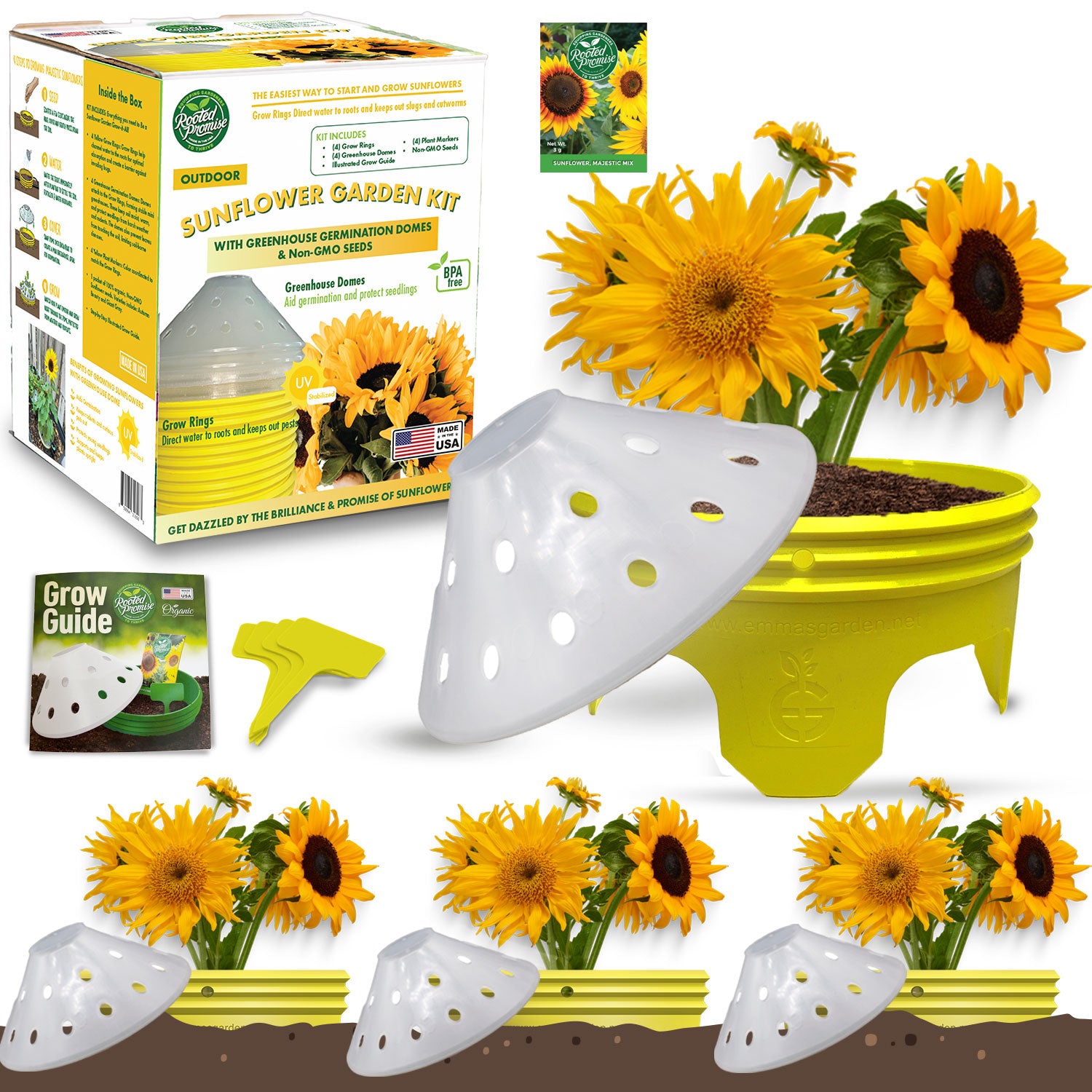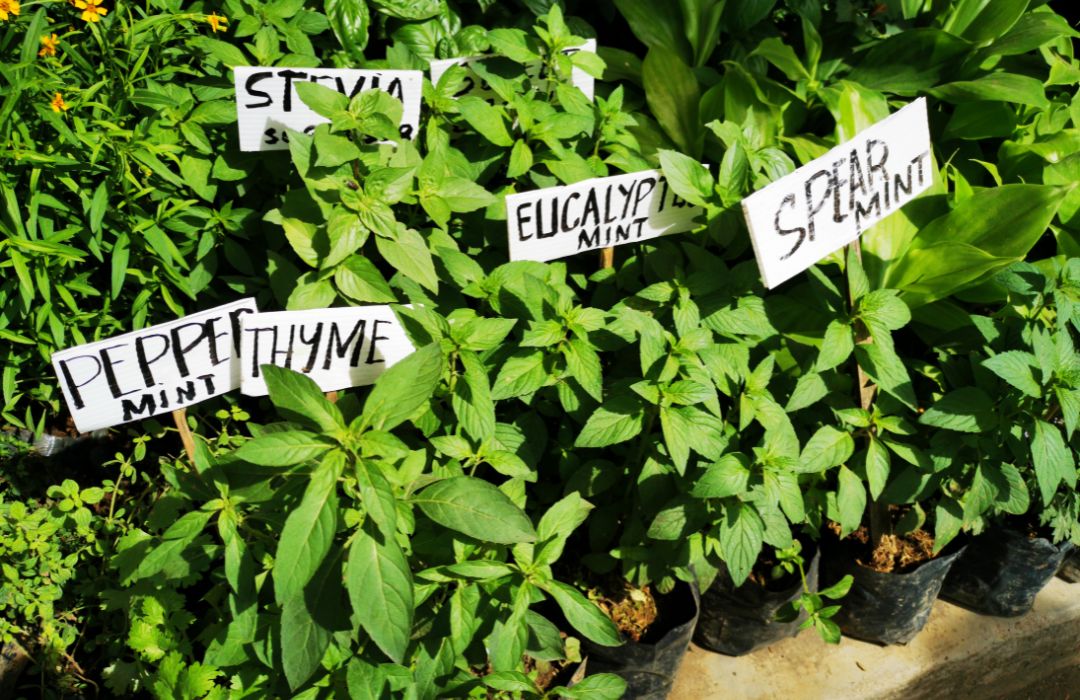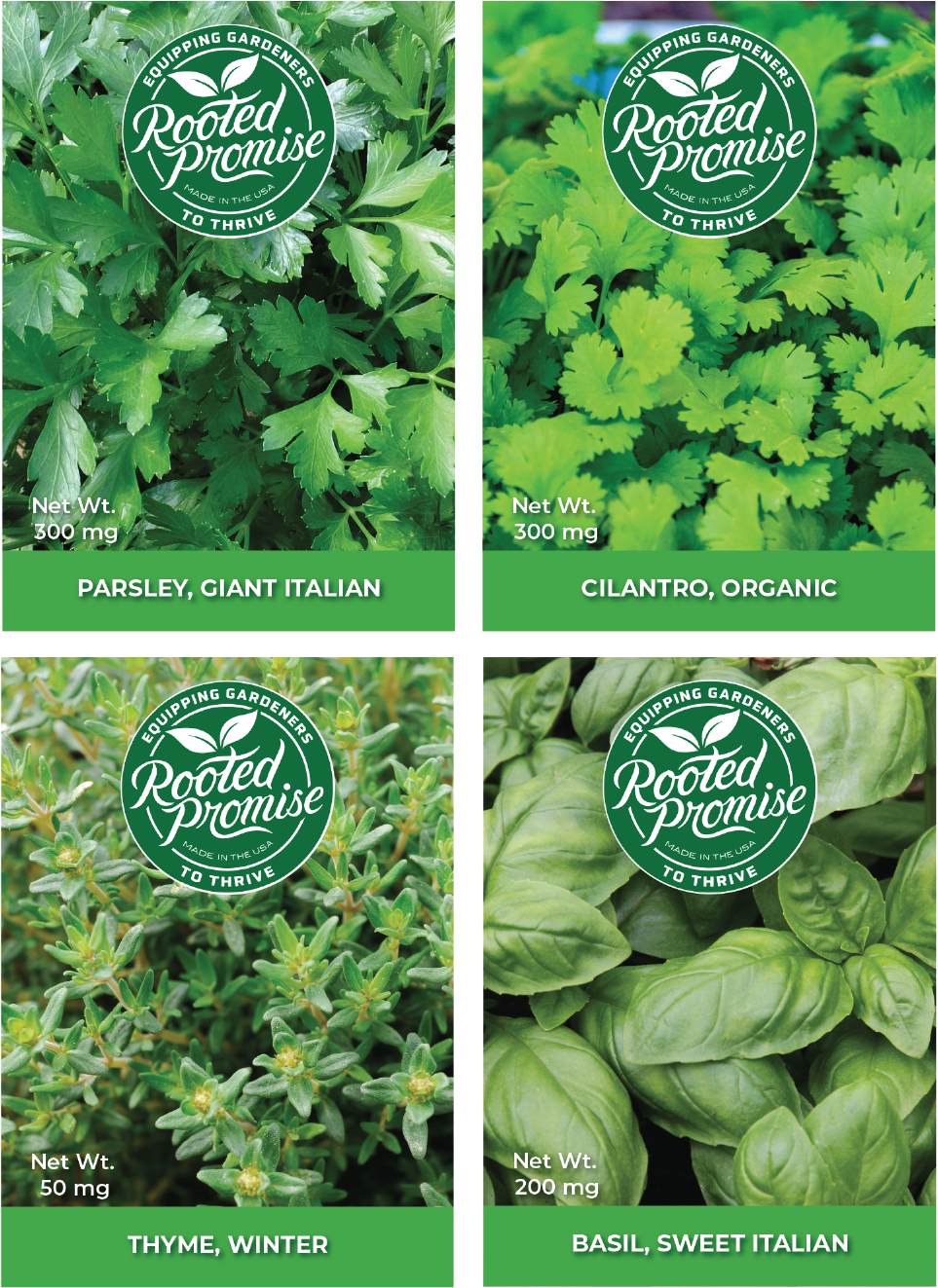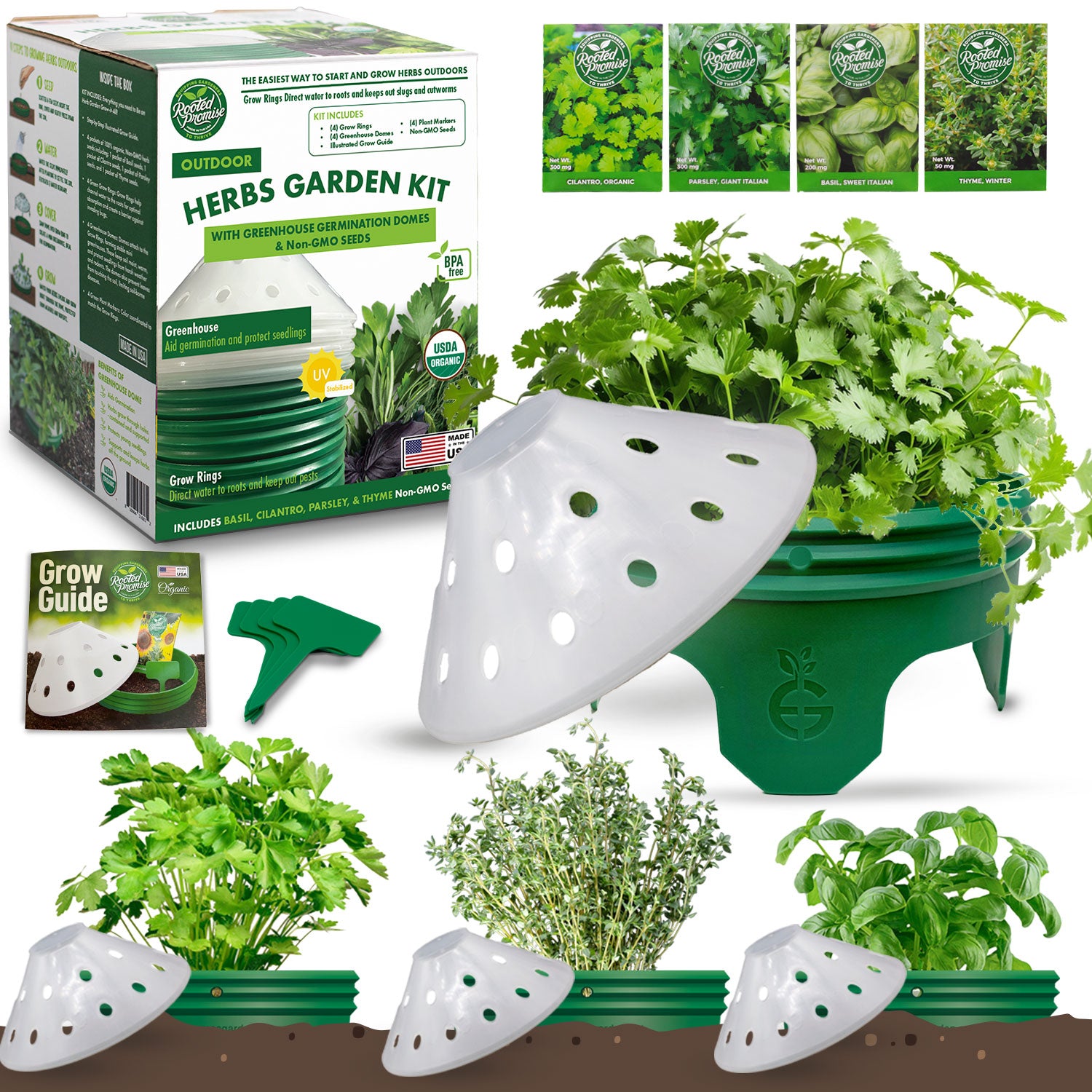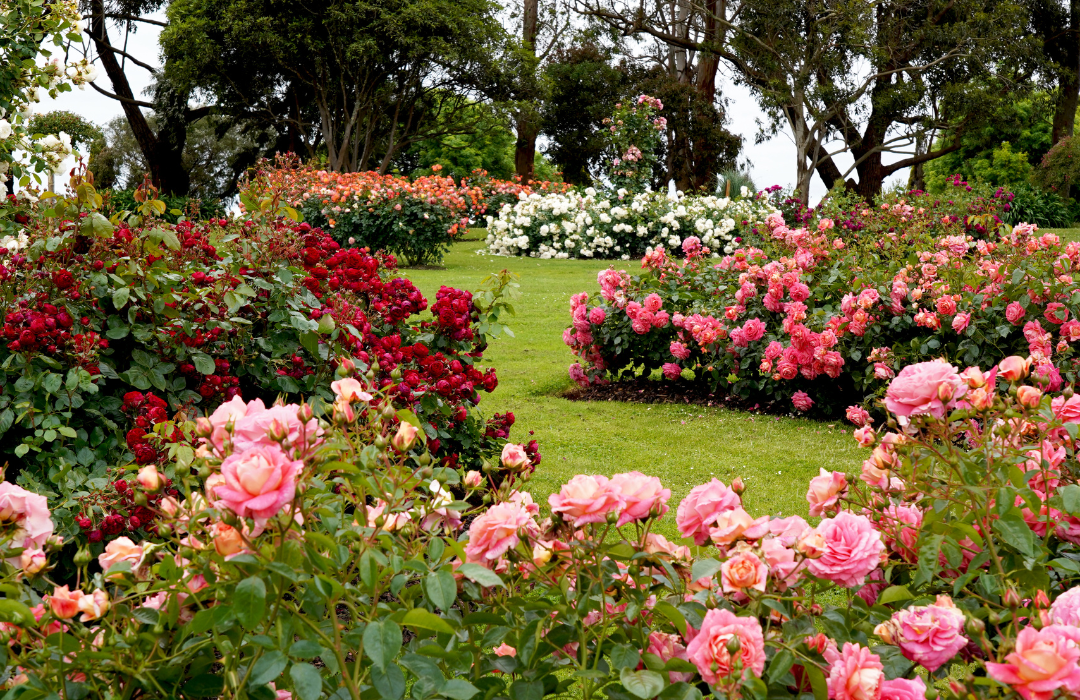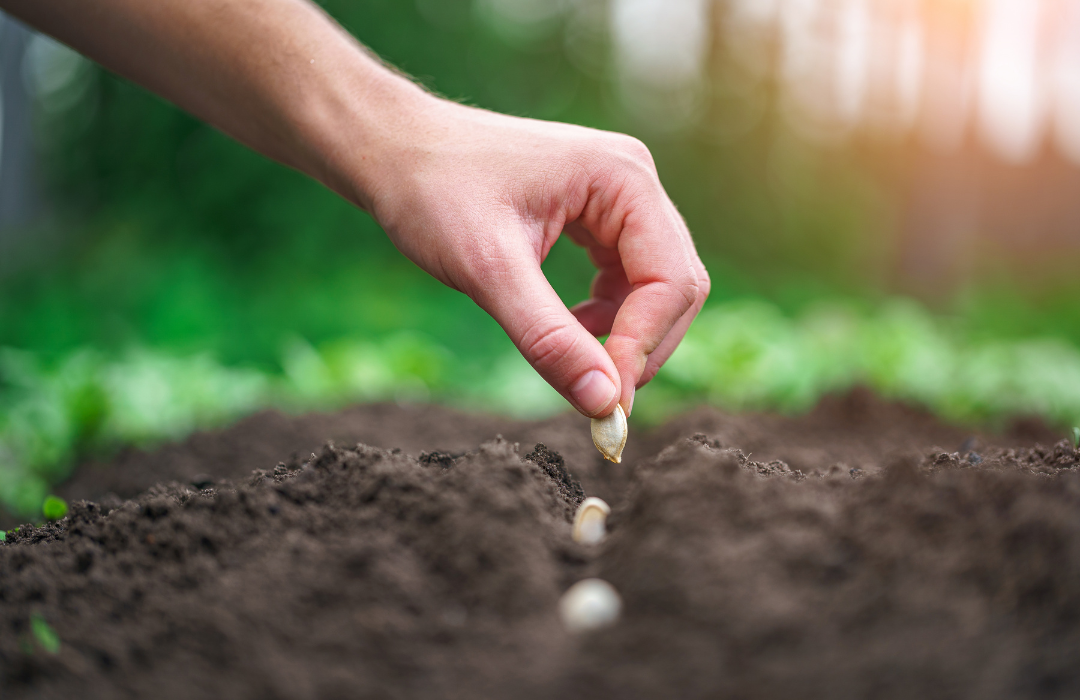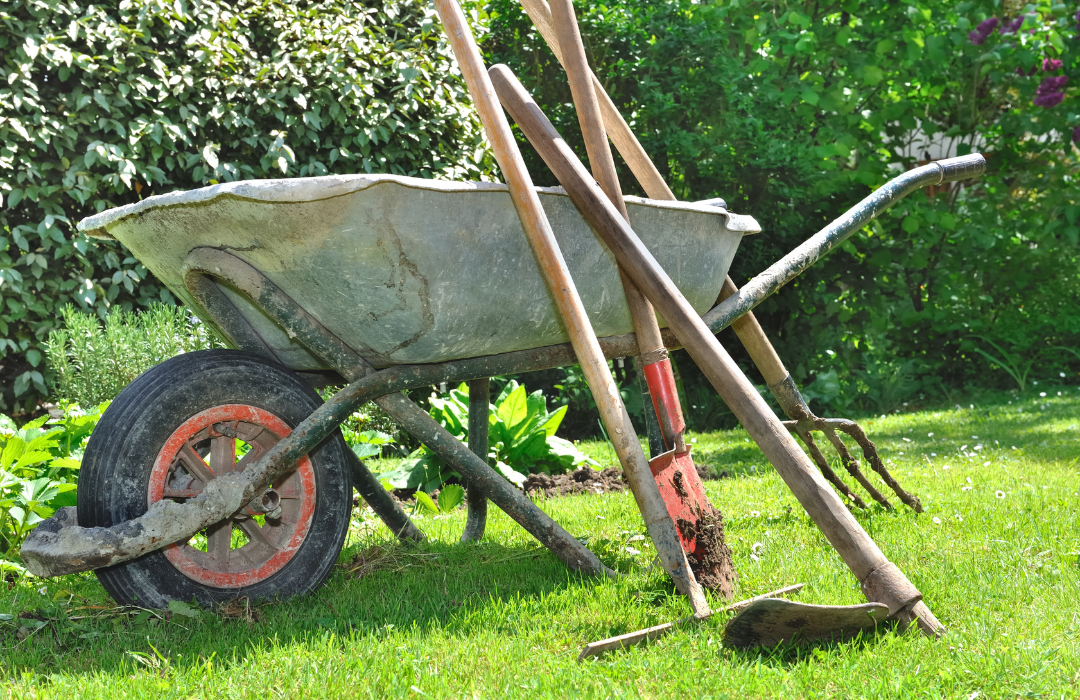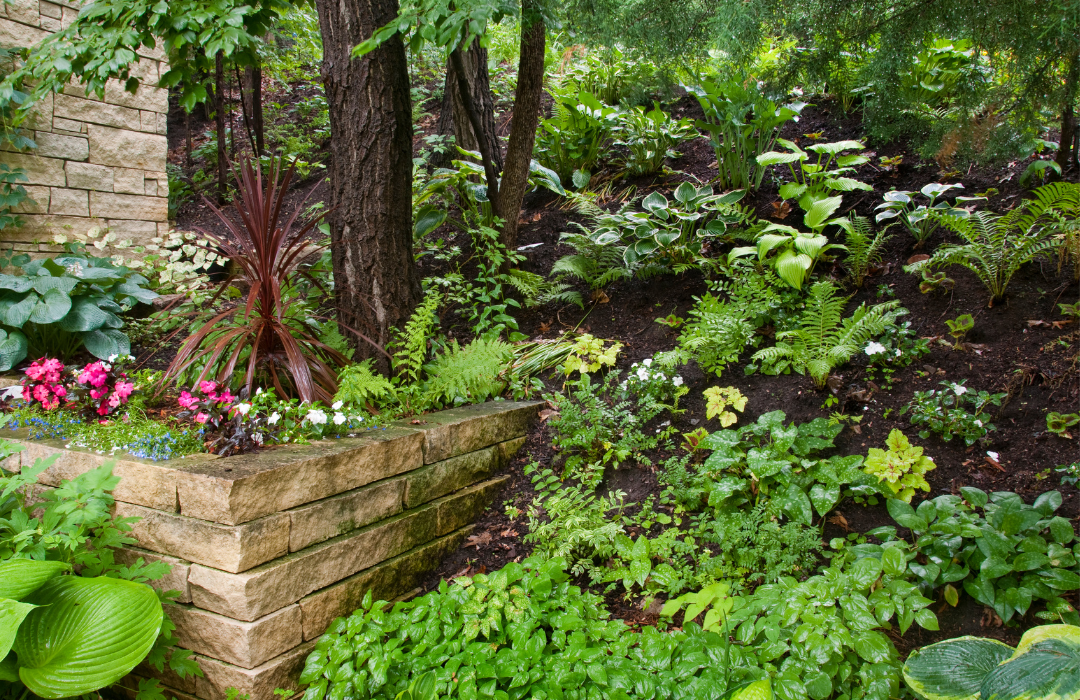
Learn how to start an herb garden outside and enjoy the benefits of fresh, flavorful herbs. This beginner's guide covers choosing the right location, selecting the best herbs, preparing the soil, and caring for your herbs.
Table of Content
- Introduction
- Benefits of starting an herb garden outside
- Health benefits of herbs
- Saving money on herbs
- Enhancing the flavor of meals
- Choosing the right location for your herb garden
- Sunlight requirements for different herbs
- Proximity to water source
- Accessibility for maintenance
- Selecting the right herbs for your garden
- Popular herbs for outdoor gardens
- Considerations for climate and growing conditions
- Herbs for culinary use
- Herbs for medicinal use
- Herbs for attracting beneficial insects
- Preparing the soil for your herb garden
- Removing weeds and grass
- Amending soil with compost or organic matter
- Testing soil pH and adjusting as needed
- Planting and caring for your herb garden
- Proper spacing and planting depth
- Watering and fertilizing herbs
- Pruning and harvesting herbs
- Pest and disease prevention and management
- Key Takeaways
Introduction
Welcome to our beginner's guide on how to start an herb garden outside. If you've ever wanted to enjoy the benefits of fresh, flavorful herbs right from your own garden, you're in the right place. Growing herbs outdoors not only adds beauty and fragrance to your outdoor space but also provides you with a sustainable source of herbs for culinary, medicinal, and even aromatic purposes.
In this guide, we'll walk you through the step-by-step process of starting your own herb garden outside. From choosing the right location to selecting the best herbs, preparing the soil, and caring for your herbs, we'll cover everything you need to know to get started on your herbal journey.
So, whether you're a seasoned gardener looking to expand your plant collection or a beginner with a green thumb itching to get started, let's dive in and discover the joys of growing your own herb garden outside.

Benefits of starting an herb garden outside
Before we delve into the practicalities of starting an herb garden outside, let's take a moment to explore the numerous benefits it can offer. From improving your health to saving money and enhancing the flavor of your meals, growing herbs outdoors is a rewarding and fruitful endeavor.
Health benefits of herbs
When it comes to incorporating herbs into your daily diet, the health benefits are truly remarkable. Not only do herbs add flavor and aroma to your meals, but they also offer a wide range of medicinal properties that can support your overall well-being.
Many herbs are packed with antioxidants, vitamins, and minerals that can help boost your immune system, improve digestion, and reduce inflammation. For example, rosemary is known for its antioxidant and anti-inflammatory properties, while mint can aid in digestion and relieve stomach discomfort.
By growing your own herb garden outside, you have a convenient and accessible source of fresh herbs that you can easily incorporate into your meals. This means you can enjoy the maximum health benefits that herbs have to offer, without relying on store-bought options that may not be as fresh or potent.
Furthermore, using fresh herbs from your own garden allows you to control the quality and ensure that no harmful pesticides or chemicals were used in their cultivation. This adds an extra layer of safety and peace of mind when it comes to your health and well-being.
So, not only will your outdoor herb garden provide you with a constant supply of flavorful herbs, but it will also contribute to your overall health and vitality. It's a win-win situation!
Saving money on herbs
Are you tired of constantly buying herbs from the grocery store and spending a fortune? Starting an herb garden outside can be a cost-effective solution that saves you money in the long run.
Think about it: a small packet of fresh herbs from the store can be quite expensive, especially if you use them frequently in your cooking. By growing your own herbs, you can have a constant supply right at your fingertips, without having to break the bank.
With just a little effort and care, you can grow an abundance of herbs in your outdoor garden. Herbs are generally low-maintenance plants, and many of them are perennials, meaning they will come back year after year. This means you'll have a continuous supply of fresh herbs without having to constantly repurchase them.
Additionally, growing herbs outdoors allows you to control the quality and ensure that no harmful pesticides or chemicals are used in their cultivation. You can choose to grow your herbs organically, which not only saves you money but also provides you with healthier and more nutritious herbs.
So, by starting an herb garden outside, you're not only saving money but also investing in your health and well-being. Plus, there's something incredibly satisfying about being able to walk outside and pick your own herbs whenever you need them.
Next, let's explore how growing herbs outdoors can enhance the flavor of your meals.
Enhancing the flavor of meals
Imagine stepping outside your door and picking a handful of fresh basil leaves to add to your homemade marinara sauce. Or snipping some rosemary from your herb garden to season a roasted chicken. The flavors and aromas of freshly picked herbs can take your meals to a whole new level.
When you grow herbs outdoors, you have the advantage of using them at their peak freshness. The essential oils responsible for their distinct flavors and scents are most potent right after harvesting. By incorporating these fresh herbs into your dishes, you can elevate the taste and make every meal a culinary delight.
Herbs like basil, cilantro, parsley, and dill can add a burst of freshness and brightness to salads, soups, and sauces. Thyme, rosemary, and sage can infuse roasted meats and vegetables with a savory and aromatic touch. And let's not forget about the classic combination of mint and chocolate in desserts!
By having an outdoor herb garden, you'll have a constant supply of flavorful herbs right at your fingertips. No more running to the store at the last minute or settling for dried herbs from your pantry. With just a few snips, you can enhance the taste and presentation of your meals, impressing family and friends with your culinary skills.
So, if you're someone who enjoys cooking and experimenting with flavors, starting an herb garden outside is a must. You'll never have to compromise on the freshness and quality of your herbs again.
Now, let’s find the perfect spot for your herbs!

Choosing the right location for your herb garden
When it comes to starting an herb garden outside, choosing the right location is crucial. The success of your herbs depends on factors such as sunlight, water accessibility, and ease of maintenance. Let's explore the key considerations when selecting the perfect spot for your outdoor herb garden.
Sunlight requirements for different herbs
When it comes to growing herbs outdoors, sunlight is a key factor in their growth and development. Most herbs thrive in full sunlight, which means they require at least six to eight hours of direct sunlight each day. Without adequate sunlight, herbs may become leggy, weak, and less flavorful.
Before choosing the location for your herb garden, observe the sun patterns in your yard. Identify areas that receive ample sunlight throughout the day. Look for spots that are not shaded by trees, buildings, or other structures. These areas will provide the ideal conditions for your herbs to thrive.
However, it's important to note that not all herbs have the same sunlight requirements. Some herbs, like basil, rosemary, and thyme, prefer full sun and thrive in hot, sunny conditions. On the other hand, herbs like mint and parsley can tolerate partial shade and may even benefit from some relief from the intense afternoon sun.
Consider the specific sunlight requirements of the herbs you plan to grow and choose a location that meets their needs. You can find this information on plant tags or by doing some research on the specific herbs you want to include in your garden.
By providing your herbs with the right amount of sunlight, you'll ensure that they grow strong, healthy, and full of flavor. In the next section, we'll discuss the importance of proximity to a water source for your herb garden.
Proximity to water source
Water is essential for the growth and survival of your herb garden. When choosing the location for your outdoor herb garden, it's important to consider its proximity to a water source.
Herbs generally require regular watering to keep the soil consistently moist, but not overly saturated. Having a water source nearby will make it easier for you to provide your herbs with the water they need to thrive.
If your chosen location is far from a water source, you may need to consider alternative watering methods, such as setting up a drip irrigation system or using a hose with a long reach. These options can help ensure that your herbs receive adequate water, even if the water source is not nearby.
Additionally, it's important to consider the availability of water during dry seasons or periods of drought. If you live in an area with limited water resources, you may need to prioritize water conservation and choose drought-tolerant herbs for your garden.
By selecting a location that is conveniently close to a water source, you'll make it easier for yourself to care for your herbs and ensure their optimal growth and health.
In the next section, we'll discuss the importance of accessibility for maintenance when choosing the location for your herb garden.
Accessibility for maintenance
When choosing the location for your outdoor herb garden, it's important to consider its accessibility for maintenance. Your herbs will require regular care, including watering, pruning, and harvesting. Therefore, it's essential to choose a location that is easily accessible.
Consider the layout of your garden and the ease of reaching the herb plants. Avoid placing your herb garden in areas that are difficult to navigate or have obstacles in the way. You should be able to comfortably move around your herbs and tend to them without any hindrances.
Accessibility is particularly important when it comes to watering your herbs. You'll need to access the plants with a watering can or hose, so make sure the location allows for easy watering without any obstructions.
In addition to watering, you'll also need to regularly prune your herbs to promote healthy growth and prevent them from becoming overgrown. Harvesting the herbs for culinary or medicinal use will also be a regular task. Having easy access to your herbs will make these maintenance tasks much more convenient and enjoyable.
By choosing a location that is easily accessible for maintenance, you'll ensure that you can care for your herbs effectively and keep them in optimal condition.
Selecting the right herbs for your garden
Now that you've chosen the ideal location for your outdoor herb garden, it's time to decide which herbs to grow. There is a wide variety of herbs to choose from, each with its own unique flavors, aromas, and uses. Whether you're interested in culinary herbs, medicinal herbs, or herbs that attract beneficial insects, there's something for everyone.
Popular herbs for outdoor gardens
When it comes to growing herbs in an outdoor garden, there are several popular options that are known for their ability to thrive in open spaces and withstand varying weather conditions.
Basil: This aromatic herb is a staple in many cuisines and is known for its vibrant flavor. It grows well in warm weather and requires full sun to thrive.
Rosemary: With its woody stems and fragrant leaves, rosemary is a versatile herb that can be used in a variety of dishes. It prefers full sun and well-drained soil.
Thyme: This herb is known for its small, aromatic leaves and is commonly used in Mediterranean cuisine. It thrives in full sun and well-drained soil.
Sage: Sage has a distinct flavor and is often used in savory dishes. It prefers full sun and well-drained soil.
Oregano: This herb is a staple in Italian and Greek cuisine and adds a savory flavor to dishes. It grows well in full sun and well-drained soil.
Mint: Mint is a versatile herb that comes in various flavors, including spearmint and peppermint. It can tolerate partial shade and prefers moist soil.
These are just a few examples of popular herbs that can thrive in outdoor gardens. By including these herbs in your garden, you'll have a bountiful supply of fresh flavors right at your fingertips.
Considerations for climate and growing conditions
When selecting herbs for your outdoor garden, it's important to consider the climate and growing conditions in your area. Different herbs have different preferences when it comes to temperature, sunlight, and soil conditions. By choosing herbs that are well-suited to your specific climate and growing conditions, you'll increase their chances of thriving and producing a bountiful harvest.
Here are some key considerations to keep in mind:
- Temperature: Certain herbs are more tolerant of heat, while others prefer cooler temperatures. For example, herbs like basil, thyme, and rosemary thrive in warm climates, while herbs like parsley and cilantro prefer cooler temperatures. Take note of your region's average temperatures and choose herbs accordingly.
- Sunlight: Most herbs require full sun to grow and thrive. This means they need at least six to eight hours of direct sunlight each day. If you live in an area with limited sunlight, consider herbs that can tolerate partial shade, such as mint or parsley.
- Soil conditions: Different herbs have different soil preferences. Some prefer well-drained soil, while others can tolerate more moisture. It's important to understand the soil conditions in your garden and choose herbs that are compatible. If your soil is heavy and clay-like, consider adding organic matter or compost to improve drainage.
- Water requirements: Herbs have varying water requirements. Some herbs, like basil and mint, prefer consistently moist soil, while others, like rosemary and thyme, prefer drier conditions. Understanding the water needs of your chosen herbs will help you plan your watering schedule accordingly.
Researching the specific requirements of the herbs you want to grow and comparing them to your region's climate and growing conditions will ensure that you choose herbs that have the best chance of thriving in your outdoor garden.

Herbs for culinary use
When it comes to cooking, there's nothing quite like the flavor and aroma of fresh herbs. Adding herbs to your dishes can elevate the taste, bring depth to the flavors, and make your meals more vibrant and aromatic. If you're a culinary enthusiast or simply enjoy experimenting in the kitchen, growing herbs for culinary use in your outdoor garden is a must.
Here are some popular herbs that are commonly used in various cuisines:
- Basil: This herb is a staple in Italian cuisine and adds a sweet and slightly peppery flavor to dishes. It pairs well with tomatoes, mozzarella, and pasta dishes.
- Cilantro: Cilantro is commonly used in Mexican and Asian cuisines. It has a fresh, citrusy flavor and is often used in salsas, curries, and salads.
- Parsley: Parsley is a versatile herb that can be used as a garnish or incorporated into dishes for added freshness. It pairs well with fish, roasted vegetables, and grain-based salads.
- Dill: Dill has a distinct flavor that complements seafood, pickles, and creamy sauces. It adds a refreshing and tangy taste to dishes.
- Thyme: Thyme is a fragrant herb that is commonly used in Mediterranean and French cuisines. It pairs well with roasted meats, vegetables, and soups.
- Rosemary: Rosemary has a strong, woody flavor and is often used in roasted meats, potatoes, and bread. It can add an earthy and aromatic touch to your dishes.
These are just a few examples of herbs that can enhance the flavor of your meals. By growing these herbs in your outdoor garden, you'll have a constant supply of fresh and flavorful ingredients to take your culinary creations to the next level.
Herbs for medicinal use
If you're interested in natural remedies and herbal medicine, growing herbs for medicinal use in your outdoor garden can be a rewarding and beneficial endeavor. Many herbs have been used for centuries to support health and well-being and having them readily available in your garden allows you to harness their healing properties.
Here are some herbs that are commonly used for medicinal purposes:
- Lavender: Lavender is known for its calming and soothing properties. It can be used to promote relaxation, relieve stress and anxiety, and improve sleep quality.
- Chamomile: Chamomile is often consumed as a tea and is known for its calming and digestive properties. It can help relieve indigestion, promote sleep, and soothe skin irritations.
- Echinacea: Echinacea is used to support the immune system and prevent or reduce the severity of colds and flu. It can also help with respiratory infections and boost overall immunity.
- Lemon balm: Lemon balm has a calming effect and can help alleviate stress, anxiety, and restlessness. It can also be used to improve digestion and promote a sense of well-being.
- Calendula: Calendula has anti-inflammatory and wound-healing properties. It can be used topically to soothe skin irritations, promote wound healing, and reduce inflammation.
These are just a few examples of herbs that have medicinal properties. It's important to research the specific uses and dosage recommendations for each herb before using them for medicinal purposes. Consulting with a healthcare professional or herbalist can provide further guidance and ensure safe and effective use of these herbs.
By growing these medicinal herbs in your outdoor garden, you'll have a natural and sustainable source of remedies that can support your health and well-being.

Herbs for attracting beneficial insects
Creating a balanced and thriving ecosystem in your outdoor herb garden is not only beneficial for your plants but also for the overall health of your garden. By including herbs that attract beneficial insects, you can encourage pollination, pest control, and overall biodiversity.
Here are some herbs that are known for attracting beneficial insects:
- Lavender: Lavender's vibrant flowers attract bees, butterflies, and other pollinators. These insects play a crucial role in pollinating your herbs and promoting their growth and reproduction.
- Thyme: Thyme's small flowers are attractive to bees and hoverflies. Bees are important pollinators, while hoverflies feed on aphids and other garden pests.
- Marigold: Marigolds not only add a splash of color to your garden but also attract beneficial insects like ladybugs and hoverflies. Ladybugs feed on aphids, which can be harmful to your herbs.
- Borage: Borage's blue flowers are highly attractive to bees and other pollinators. Bees love the nectar-rich flowers and can help pollinate your herbs.
- Calendula: Calendula's vibrant orange and yellow flowers are not only visually appealing but also attract beneficial insects like bees and butterflies. They can also help deter certain pests.
By including these herbs in your outdoor herb garden, you'll create a welcoming environment for beneficial insects, which can help maintain a healthy and balanced ecosystem. These insects can aid in pollination, control pests, and contribute to the overall health and productivity of your garden.
Preparing the soil for your herb garden
Before you start planting your herbs, it's important to prepare the soil to provide the best possible growing conditions. Proper soil preparation will ensure that your herbs have access to the nutrients and drainage they need to thrive.
Here are the steps to prepare the soil for your herb garden:
- Removing weeds and grass: Clear the area where you plan to plant your herbs by removing any weeds, grass, or other vegetation. This will prevent competition for nutrients and space.
- Amending soil with compost or organic matter: Enrich the soil by adding compost or organic matter. This will improve its fertility, drainage, and overall structure. Spread a layer of compost or organic matter over the top of the soil and mix it in thoroughly.
- Testing soil pH and adjusting as needed: Test the pH of your soil using a soil testing kit. Most herbs prefer a slightly acidic to neutral pH (around 6.0 to 7.0). If your soil is too acidic, you can raise the pH by adding lime. If it's too alkaline, you can lower the pH by adding sulfur or peat moss.
By following these steps, you'll create a nutrient-rich and well-draining soil that will provide a healthy foundation for your herb garden. Once the soil is prepared, you're ready to start planting your herbs.
Planting and caring for your herb garden
Now that you've prepared the soil, it's time to start planting your herb garden. This is where the magic happens as you watch your garden come to life and your herbs start to thrive. Here's a step-by-step guide to planting and caring for your herbs:
- Proper spacing and planting depth: When planting your herbs, make sure to give them enough space to grow. Each herb has different spacing requirements, so refer to the seed packet or plant label for specific instructions. Dig a hole that is slightly larger than the root ball of the herb and gently place it in, making sure the top of the root ball is level with the soil surface.
- Watering and fertilizing herbs: After planting, give your herbs a thorough watering to help settle the soil around the roots. In general, herbs prefer moist but not waterlogged soil. Water them regularly, especially during dry spells, and avoid letting the soil dry out completely. As for fertilizing, most herbs don't require heavy feeding. A light application of organic fertilizer or compost once or twice during the growing season should be sufficient.
- Pruning and harvesting herbs: Regular pruning is essential for the health and productivity of your herbs. Pinch or trim back the stems regularly to encourage bushier growth and prevent them from becoming leggy. When it comes to harvesting, it's best to snip or cut the herbs just above a set of healthy leaves. This will promote new growth and ensure a constant supply of fresh herbs.
- Pest and disease prevention and management: Keep an eye out for common pests and diseases that can affect your herbs, such as aphids, snails, and powdery mildew. Regularly inspect your plants for any signs of damage or infestation. If you notice any issues, take appropriate measures to control the pests or diseases, such as using organic insecticides or practicing cultural methods like removing affected leaves.
By following these planting and care guidelines, you'll give your herbs the best chance to thrive and provide you with a bountiful harvest. Remember to enjoy the process and take the time to appreciate the beauty and fragrance of your herb garden.

Key Takeaways
Starting an herb garden outside can be a rewarding and fulfilling experience. Here are the key takeaways from this guide:
- Starting an herb garden outside offers numerous benefits, including health benefits, cost savings, and enhanced flavor in meals.
- When choosing the right location for your herb garden, consider factors such as sunlight requirements, proximity to a water source, and accessibility for maintenance.
- Select herbs that are well-suited to your climate and growing conditions, and choose herbs for culinary use, medicinal use, or attracting beneficial insects based on your interests and needs.
- Prepare the soil by removing weeds and grass, amending it with compost or organic matter, and adjusting the pH if necessary.
- Plant your herbs with proper spacing and planting depth, water and fertilize them appropriately, and regularly prune and harvest to promote healthy growth.
- Be vigilant in pest and disease prevention and management to ensure the health and productivity of your herb garden.
With these key takeaways in mind, you're well-equipped to start your own herb garden outside and enjoy the benefits of fresh, flavorful herbs.
So, why wait? Gather your tools, select your favorite herbs, and start planting your herb garden today. Get ready to experience the joys of growing your own herbs and reaping the benefits of fresh flavors, vibrant aromas, and a closer connection to nature.
Happy herb gardening!
Rooted Promise offers some herbalicious products to create a magnificent herb garden.
